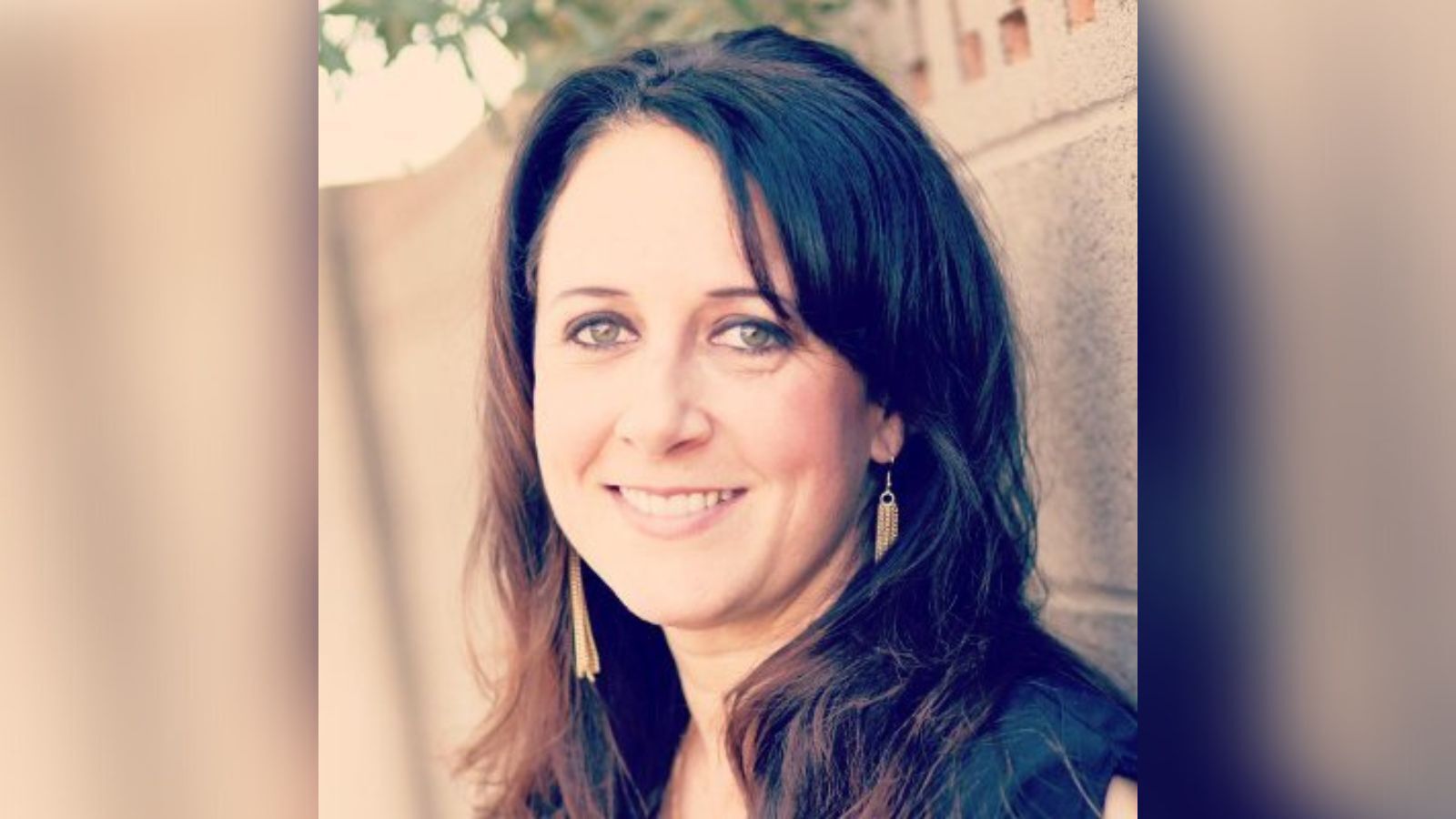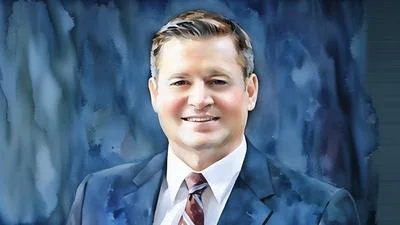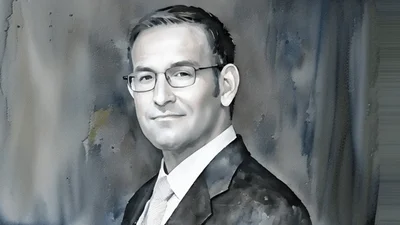Heather Lauer is the Executive Director of People United for Privacy (PUP), which focuses on free speech in America. She is the author of "Bacon: A Love Story."
The following has been edited for context and clarity.
Federal Newswire:
We are seeing a real assault on free speech. We're going to talk about the privacy aspects of it, but talk about where America stands with free speech generally right now.
Heather Lauer:
I think people have more of an awareness of how important it is now, more than they have in a long time. When we go out and talk about our issue of protecting donor privacy, five years ago, that was kind of on people's radar, but they sort of understood it, sort of didn't. Now they really understand it. Cancel culture has become real for people. Targeting's become real for people, and I think there's just much more of an appreciation for why these rights matter.
Federal Newswire:
Do you think that there's been an acceleration in this issue of cancel culture over the last few years? Where is this coming from? Why are we at this moment right now?
Heather Lauer:
There is and there's no question that social media has driven a lot of this. People have more access to the channels where they can have these conversations, and have these fights, and target people, and out people. There wasn't an ease of access to the platforms a few years ago in the way that there is now. And so I think that is just one way in which it's easier for somebody get to get targeted at this point. And I think that's just one element of it though. Our political climate is obviously in a different place than it was several years ago, and so that's enabling a lot of people and empowering people and there's just kind of a vicious cycle to it. The media has a self-interest in having more access to donor information, so they can go after people that they dislike. So we're seeing more and more articles about non-profit donors and other people that members of the media might not agree with, being outed and the topic of stories and being targeted in ways that maybe just was not happening several years ago.
Federal Newswire:
What is your view of the importance of people being able to support organizations anonymously, a principle affirmed by the Supreme Court, not just in the NAACP versus Alabama decision, but then in the AFP Foundation versus Bonta decision.
Heather Lauer:
Sure. This issue goes even beyond the NAACP case in 1958. This goes back to the founding of our country. This is a first principle for us, the idea that we have the ability to speak anonymously and associate with others who share our beliefs. This is something the Founding Fathers cared about. And so that is just one of many reasons why it's disturbing to us that we're having this debate. This is the foundation of our country. This is something we all should just fundamentally agree on, which is that even if we disagree on every other issue on the planet, we should agree on the right to disagree. And so the first case that's kind of notable in this space as it relates to non-profit donor privacy, is that NAACP v Alabama case in 1958, where the State of Alabama was trying to force the NAACP to disclose their donors so that they could target and retaliate against those people who were supporting the Civil Rights Movement.
The Supreme Court unanimously decided in favor of privacy in that case. And that kind of set the course I think for what we've seen now over the last several decades. And there have been multiple cases where this issue's come up. The Supreme Court's always been on the side of privacy for the most part. But again, last year, the AFPFP Bonta case, another example. Maybe not unanimous, but it was a very strong privacy decision in terms of affirming that we have the right to associate with others privately, and that just because the government has some interest in being able to target this very small percentage of non-profits that might be doing something wrong, doesn't mean the rest of us should have to give up our rights to have the ability to give to organizations privately.
Federal Newswire:
How you draw the line where transparency meets privacy?
Heather Lauer:
It's a very clear line for us. Transparency is for government, privacy is for people.
There's no question that we should have more access to what our government and elected officials are doing, we should be able to see how those decisions are being made. And that's behind the fact that we do have to disclose who donates to political candidates. When you're giving money directly to a political candidate, there's a sense that you might have, especially a certain monetary number, might have some sort of influence over what sort of decisions those elected officials are making. That is extremely different from people who donate to nonprofit organizations who are out advocating on behalf of issues. Those aren't people who are directly giving to an elected officials who's in a decision making position. And so the two need to be kept separate. Just because we feel like one group might have more influence than another group, doesn't mean that they don't have the right to speak and that their members don't have a right to support that speech anonymously.
That's a key point. And it goes even further than that, which is that people who can contribute 10 or $50 to a cause who may not have a direct line to an elected official, do have the ability to come together as a group and support a cause that can speak on their behalf and who can spread their ideas and have a voice for them that they might not have on their own. And so it's not even so much about influencing what elected officials are doing, it's about democracy.
It's about giving voice to a people who wouldn't otherwise have a voice, and who can't have that sort of influence on their own. But when they come together as a group, they can make a difference
Federal Newswire:
What has happened to people when they've been uncovered giving to causes that the majority may not like?
Heather Lauer:
Well, this is the funny part about what our opponents say on this issue. They talk about needing more transparencies so they know what Charles Koch and George Soros are donating to, yet they seem to have a pretty good handle on what Charles Koch and George Soros are donating to.
I'm not really sure what else they're going to learn about those big targets with donor disclosure, maybe some details they didn't have. There's not anything to be revealed there. The concern is absolutely of those who are donating 5, 10, 50, even $1,000 or $5,000 to an organization. Those people don't have the ability to protect themselves when a mob shows up at their door and is upset about something that they support. And we have countless examples from across the country of this. There's an example we talk about frequently of a waitress in California, who in 2008 donated $100 to a ballot initiative and it was something that upset a lot of people.
They showed up to her restaurant, they picketed, they disrupted the business. She ultimately lost her job over a hundred dollar donation. Most Americans can't afford to lose their livelihood over small dollar donations to causes that they care about. And that's what's going to shove people out of the political process. If they're forced to disclose their donations, activists can get their lists of names, they can go out and target them in person or on social media in whatever way, and it's going to silence those voices at the end of the day. Donor disclosure is not going to silence the voices of people who are donating millions of dollars to these various organizations and who can protect themselves.
Federal Newswire:
Let's talk about the use of law enforcement as a tool to chill speech.
Heather Lauer:
Getting the list of donors is just the tip of the iceberg for this process. That's just where it starts. Once you have the list of donors, then what are you doing with that list of donors? And when an elected official has access to a list of people with whom they disagree and they have the government behind them, they have relationships with law enforcement, they have relationships with an attorney general, it just opens up a can of worms and their ability to go out and target people who are on the opposite side of them as an issue, and to prevent those people from being able to, at best, preventing them from being able to speak on issues they care about, but at worst, targeting them in ways that might actually get them thrown in jail or might cause significant harm to their livelihood. And so it's extremely dangerous to give this sort of information to those who are in power, and who have the power to punish people if they don't like what they're talking about.
Federal Newswire:
Yeah, we've seen this. And the end result is of course people will just shut up?
Heather Lauer:
That is absolutely the goal.
Federal Newswire:
So-called dark money. Talk a little bit about that.
Heather Lauer:
I think we absolutely have to call out the hypocrisy of this. It's been documented and reported on many times over the last couple years, that Democrats outspent Republicans in this area. And so it is pretty difficult to listen to a group of people go out and propose the expansion of donor disclosure, while they're also taking advantage of the situation. So it makes you wonder about their motives and about the sincerity of this. But it is, I think, appropriate for us to call out that hypocrisy. I think it's important for us to have a conversation about it. I think it's a slippery slope for conservatives to begin coining the term dark money and embracing that as a term that we should use. First of all, there's not a consistent definition of it. There's not a legal definition of the term dark money. It's kind of about feelings more than it's about facts. But beyond that, it's a term that was invented over a decade ago to target conservatives specifically. It was meant to shut down conservative groups and ideas and issues.
And so for us to attempt to turn that around on the left and use it as a way to target what they're doing, again, it's fine for us to call it the hypocrisy of what they're doing, but this is a dangerous game that has the potential to backfire. Because once you've identified a problem which is, "Dark Money," then you have to start looking for solutions. And so that's what led to a couple weeks ago, Chuck Schumer forcing a vote on the Disclosure Act in Congress, because Republicans have been out talking about dark money. He's like, "Well, then let's have a vote about dark money." Where does it go from here? Maybe Republicans start to question whether or not donor privacy is important. And five or 10 years from now, maybe we're unfortunately fighting people on our own side of the aisle on this issue. And at the end of the day, conservative organizations are going to be the ones that are harmed by disclosure more than left of center organizations. The media, if it has access to a list of targets, that's who's going to get hit.
Federal Newswire:
Are there examples of this?
Heather Lauer:
Donors to ALEC. A more recent example of this though, which is just so frightening. I'm sure a lot of you are familiar with the trucker protests that were happening in Canada earlier this year, against vaccine mandates. There were some Americans who donated to that cause. A media outlet got a hold of that list of donors through a hacker who obtained the list illegally.
And that resulted in a series of articles calling out and attacking people who had given $10 and $100, very small dollar amounts to this cause that they cared about. The Washington Post is where this started and they just grasped onto it and ran with it. And they didn't care that they were potentially causing harm to small dollar donors. There were some larger donors who were in the mix as well, but this was a very concerted attempt to go out and target people who had given very small amounts to this cause. And so that is a very good example. Even though the list in that case was obtained in a legal way, it's a good example of what would happen if lists were just available legally, for the media to go out and use whenever they want to write a story about a hot button topic or something that they disagree with.
Federal Newswire:
You're a fifth generation Idahoan.
Heather Lauer:
I'm a Idaho native. My family, my last name's Lauer, so half of my family is from Germany and studied the German language when I was in high school and college because it just was interesting to me to learn more about my family and to have that connection and to be able to do some research. I actually have been working on a research project this week, genealogy project where I've been communicating with people over in Germany about what we're doing. So it's been useful to have that language knowledge. But because I studied it in high school, I ended up doing an exchange program in Germany between my junior and senior years of high school. And that was my first taste of international travel and it became something that I've been passionate about. So that's what I spend a lot of my free time doing. I've been to all seven continents. I've been to over 40 countries. And so that's where it started, was with just a simple exchange program in high school.
Federal Newswire:
Did you go to college in Australia?
Heather Lauer:
I spent a semester there at the University of Melbourne.
Federal Newswire:
You wrote a piece a few years ago about extremists not wanting to thwart your travel plans...
Heather Lauer:
Yeah, you have to be smart. I don't have a cavalier attitude about it. I'm self-aware when I'm traveling to a place where, especially as a woman, that might present some challenges. And I've certainly been in my share of uncomfortable situations. But the thing I've learned, the more countries I've visited and as I've kind of reached that number of having visited more than 40 countries, I've been reflecting on what I've learned from that. And I think there are a couple key lessons I've learned from my experiences elsewhere. One is that we have much more in common with people elsewhere than we don't. And whenever I'm traveling around the world, there are people who have an appreciation for America, they have an appreciation for our ideas, and they might not have those same privileges where they live, and so that always leads to a very interesting conversation.
And the other thing I've learned from that is that the people are what are most interesting about the travel. It's fun to go see all the landmarks in famous places, but I've learned more from people than I've learned from many historical sites that I've visited. I think that's what helps to address some of the challenges of going to places where there might be an elevated sense of danger, is at the end of the day, you're there learning about people, you're making a connection. Most of the people who live in those places are not the extremists who might cause harm to you, they're just everyday people trying to make a living. And so that's kind kind of the lens through which I look at my travel.
Federal Newswire:
Do you have a happy place, some favorite spot that you like, that you keep feeling like you get drawn back to?
Heather Lauer:
Well, I keep going back to Australia. I've been there many times. But also the more I've traveled, the less I want to be in cities. I like to be out in the middle of nowhere, so I've spent quite a bit of time in the Australian Outback.
In very, very remote communities and places where there's no one else around, so those are the things that attract me at this point.
Federal Newswire:
You wrote the book "Bacon: A Love Story," in 2009, your Love letter to Bacon.
Heather Lauer:
This is a funny story. So it started as kind of a joke. I started a blog back in 2005. I worked in politics my entire life, and I've done a lot of work with grassroots campaign management. And back in 2005 as digital tools like blogs and social media were starting to become more common and more used, it was clear that was going to be an important part of politics moving forward and I wanted to learn more about it. But I didn't want to start about a blog about politics. I wanted to start a blog about something else. And so I went out and had cocktails with my brothers one night, and we came up with the idea to start a blog about bacon. I had absolutely no idea at the time that bacon was about to have this massive explosion in popularity and to become this thing that people talk about on the internet and social media. And I stupidly found myself in the middle of that.
It just kind of took off from there. I ended up starting this blog about make bacon that was somewhat popular, got some traffic. A book packager approached me, we pitched a publisher. I got a book deal. None of this was a plan. It just kind of happened by luck. But it was a fantastic experience. Most people don't get that opportunity to write a book and I'll never do it again. It's actually a lot of work, but I enjoyed the process.
Federal Newswire:
Do you have a favorite bacon? Or a favorite use of bacon?
Heather Lauer:
This is a book. This is something I can write a book about.
When I was writing the book, I spent a lot of time in rural areas of Kentucky and Missouri and places where people still make bacon in sheds in their backyard. That's kind of where the bacon industry started. And so my favorite bacons are from some of those families. They're not names that you would ever know from going to the grocery store. They're places that you would know because you just happen to know that family because you live in their community. And so those are my favorite bacons. There's one family I met with who their family's been making bacon for over 100 years. They still make it in the old style, to the point where the whole point of bacon is that you cure it so it has a shelf life to it. Most bacons these days don't have the level of salt that bacon had back then and need to be refrigerated. But this family was still making bacon that they could throw up on a shelf and it would be fine six months later.
It was cool experiences like that, that were really the highlight of the whole project.
Federal Newswire:
So what's next for People United for Privacy? We're facing the midterm elections, we're going to have possibly a different political landscape nationwide after January. What are you guys looking at?
Heather Lauer:
We're already looking forward to and planning for next year, one of the key pieces of work that we do is we have a bill, a model, a piece of legislation called the Personal Privacy Protection Act, that we're working to get enacted in the states. It's been signed into law in 14 states already. The law builds on the decision in Americans for Prosperity Foundation v Bonta. Which basically what the bill says is that no government official or elected official can demand non-profit donor lists, outside of any existing campaign finance framework that exists in the states. They can't just randomly say, "I want your list so you can do business here." There has to be some sort of law behind those requests. And if that information is requested or accessed or released to the public, there are fines associated with that.
So we are looking at another close to a dozen states where we're attempting to pursue this legislation next year. It's going to be a very busy year. And we're looking to move into more purple and blue states. We've spent the last couple years having a lot of conversations with groups and elected officials on the other side of the aisle about this issue and why it applies to everyone, why it's important to everyone. And we've actually made some progress in convincing Democrats that they should care about this just as much as Republicans. So we're looking to expand that conversation and to continue getting this bill passed in as many states as possible.
Federal Newswire:
How can folks find out more about the work that you guys are doing?
Heather Lauer:
Unitedforprivacy.com is our website, so that is the best place to go. We're also on Twitter and Facebook.








